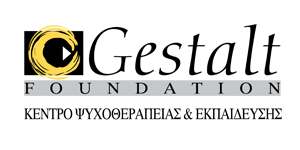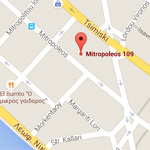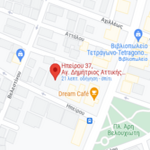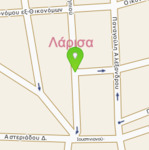The cycle of workshops will be held online as follows:
1st Workshop (10h) webinar
- Introduction
Date: Saturday February 3rd 2024
Time: 15:00-17:00
Coordinator: Balliou Despina
- Gestalt & Aesthetics
“THE BEAUTY OF PRESENCE IN RELATIONAL GESTALT THERAPY”
The intention of the workshop is to define, understand and practice how aesthetic can be a very useful tool in our interventions as relational Gestalt therapist. Through theoretical reflection, exercises and demonstrations, we will share how presence and aesthetic are intimately related. Presence of the patient and the therapist are always sustained by aesthetic elements that we need to learn how to bring to our consciousness at the service of the therapeutic process. Together we will explore the beauty of presence.
Dates:
Saturday February 3rd 2024 Time: 17:00-21:00
Sunday February 4th 2024 Time: 17:00-21:00
Coordinator: Tur Valverde Guy- Pierre
2nd Workshop (5h) webinar
- “Art in Phenomenology"
The philosophical tradition of phenomenology, founded by Edmund Husserl and continued by Martin Heidegger, Maurice Merleau-Ponty and others, offers a method that helps us cultivate a natural and authentic relationship with the world and art.
It is a perspective that redefines the value of direct and meaningful human experience, highlighting existential "becoming".
Characteristic, for the phenomenological approach, is the view that the world is "already here", unique and inexhaustible to be discovered through the "experience of our truth".
Phenomenology is one of the main pillars of Gestalt therapy, seeking to identify and enhance immediate experience, refining the awareness of the individual and their reality, through the phenomenological method – epoche, intentionality, lived body, meaning making.
Phenomenology's engagement with art is a living feature of the phenomenological tradition in philosophy, believing that "artworks" are phenomena capable and dynamic of highlighting our relationship with the world.
According to Merleau Ponty (1991) art teaches us the embodied perception of our relationship with the world. He considers that "art is a turn towards the being of things in their secret vibration, it constitutes the opening of a perspective towards nature..., where its activity is an expressive activity..., it establishes with authentic language, new meanings..., it says what it does not it has been said so new traces of orientation to emerge to be emerged in the world' (p. 15).
Gestalt therapy as a phenomenological approach is directly linked to art, as it views art both as a vehicle and as an entity in its own right. He also considers it important in the development of a "creative" therapeutic process, providing the ground, the tools and the living experimentation thus facilitating the investigation, understanding and experience of the therapeutic work.
"Once a painting is broken into pieces,
in our hands there is nothing else
from colored pieces of the canvas.
If we dissolve a stone,
then the pieces of stone we have in our hands
they continue to be pieces of the stone.
The "real" lends itself to a perpetual exploration.
It is inexhaustible!”
Phenomenology of Perception.
M.M. Ponty
Date: Sunday March 3rd 2024
Time: 10:00-15:00
Coordinator: Balliou Despina
3rd Workshop (14h) webinar
DANCE
- “Dance is the hidden language of the soul” Martha Graham
During this workshop we will share tools and methods through the art of dance to be applied in both the therapeutic and the educational creative process. Our aim will be to develop our kinetic self-awareness, to draw inspiration for working with the body, to co-create and mainly to dance together in the rhythm of contact.
How can I combine the silent art of dance with speech therapy and education? How can I work individually, in pairs or with groups? Do I touch; Am I trusting; Am I letting go? Do I accept; Am I dancing alone or with you?
Drawing tools from the practices of contemporary dance, improvisation, meditation, contact improvisation, Dance Rhythm Therapy through Primitive Expression, stretching, ideokinesis, choreographic composition as well as the study of the body’s anatomy and its relationship with the space and the rhythm, we invite you:
"with simple movements to create great dances..." and to experiment with techniques and methods that we can make good use of in our work.
Coordinators: Katsamakis Konstantinos – Pappa Exarmenia - Chatzigeorgiou Eleni – Hatzilakou Katia
- Music
Music is much more than "just another activity" in our lives. It is an integral part of our development as individuals and as members of social groups. Music today has been transformed by technology and by the amalgamation of so many different traditions.
Sound and music are at the core of human existence, thought and behavior. They provide the most important elements for our integral development including cognitive, emotional, physical and mental benefits.
Together we will explore musical interactivity with a therapeutic and educational goal; a process that can lead to transformative experiences and a lifetime of authentic interaction.
Coordinator: Zafranas Nikos
Dates: Saturday March 30th 2024 Time: 10:00-17:00
Sunday March 31st 2024 Time: 10:00-17:00
4th Workshop (14h) webinar
- Gestalt and Theater
The art of theater combined with techniques and applications belonging to the field of educational drama offer an ideal tool for empirical investigation and awareness in issues related to attitudes, behaviors and feelings of the individual.
Through the process of experiential theater practices, the individual has the opportunity to experiment with their expressive means, to try new ways of solving problematic situations and behaviors, to trust and invest in their imagination, creativity and, by extension, their own Self.
The theater is a space of inclusion and coexistence of all the basic structural elements of the other arts, strengthened by the uniqueness given to it by the status of "ephemeral and living art".
Concepts such as, among others: "awareness", "experience", "inclusion", "here and now", "holism", "action"... are just some of the main axes connecting Gestalt therapy with theatrical practice and the wealth of applications generously offered through theater as a valuable tool both in therapy and in any other humanitarian and educational field.
Coordinator: Raptis Nikolas
- Visual arts
Visual art is sometimes a “figure”, and sometimes the “ground” of cultures. It goes along with and accompanies man from the first days of their existence. It has been a basis and a guide for the evolution of generations and societies. From then until today, from the caves to our offices and classrooms, it gives man the opportunity to focus on the “here and now” and make figures with their pencil, paints and brushes, the clay that their hands shape. Man is placed in the position of the Creator, and their creation is there to transmit, to vent, to communicate everything that is in their awareness or not, ultimately acting as a mirror of a micro-society, in which the positions of transmitter, receiver and message are constantly changing. In this workshop, we will experiment with painting, sculpture, collage and other techniques, playing with “figure and ground” and creating new visual relationships and encounters.
Coordinators: Daktila Liana – Tsiamoura Marialena
- Theater of Puppets and Objects
Puppets are material and objects. Despite this, we see them taking breath and life. We connect with them and develop relationships, which are very similar to those we develop with humans. In the therapeutic or educational process, we are called to construct them, to make decisions about their character, to talk about them, to animate them. The puppet, from its part, can speak for us, express what we cannot express, live the experiences we do not have the opportunity to live. It can be a tool and means for investigation, experimentation, expression, communication, creation. It is the boundary of contact, the field in which experience emerges, and the restorative experience itself simultaneously. Our goal is to discover how it works and the dynamics that accompany it.
Coordinators: Daktila Liana – Tsiamoura Marialena
Dates: Saturday April 13th 2024
Time: 10:00-17:00
Sunday April 14th 2024
Time: 10:00-17:00
5th Workshop (12h) webinar
- Gestalt Art Therapy. Working with people with dementia and Alzheimer’s disease and persons with breast cancer
From the day we are born, all sorts of events and situations alternated in our daily lives. These are experienced differently by each one of us and arouse a range of emotions often recorded and expressed through art. Primitive people initially painted images on cave walls reflecting events and situations they experienced. At the same time, they expressed feelings and their inner world through drawing and body painting or, later, through their attire. For years, people of all ages have been expressing their inner world through the colours they choose to wear. In different cultures colours are still used to make a statement of emotional states concerning death and grief/mourning, weddings, or various ceremonies. Humans seem to try to express their feelings and emotional states in every possible way: either trying to represent the way they perceive themselves (plastic arts), or through the so-called ‘immaterial’ arts, i.e., poetry (literature), music, drama, and dance (Siampani, 2011).
At the seminar, we are going to be involved in artwork and have the opportunity to see art works by persons on therapy and to discuss how art combined with the philosophy of Gestalt therapy remain significant tools to achieve awareness, contact and support even when used online. These sessions focus on vulnerable population groups, such as persons with some form of dementia, the commonest of which is Alzheimer type dementia, and cases of women suffering from breast or metastatic cancers.
This is how one of the women with breast cancer, who participated in the online art therapy session, organised by ALMA ZOIS, the Greek Breast Cancer Association, described her experience: “… I had no knowledge of Gestalt therapy, nor had I participated in a Gestalt art therapy workshop. I am really excited about it. I have learnt a lot about myself through my artwork, the feedback of other participants, the artwork of other women, and the coordinator. Many times, I was speechless seeing the works of others and listening to what they shared. These two hours a week were beautiful and creative; when I logged out after our sessions, I felt light and serene. There were so many feelings during the workshop, but also during the rest of the week, when I recalled our meetings: joy, excitement, impatience, curiosity, admiration, pride, love, caring, relief, kindness, surprise, hope, sorrow, solidarity and more. I wish there were more such meetings, or, if feasible, the current cycle could be extended. I think that if workshop were held at physical meetings, we could feel even closer to each other. On the other hand, through online meetings I had the opportunity to participate in such a workshop and meet so many wonderful women from various parts of Greece.”
Date: Friday May 10th 2024 Time: 17:00-21:00
Coordinator: Siampani Katerina
- Polarities and Expressive Arts
The polarities in Gestalt therapy can be understood as the extremes of our inner conflicts or even as the extremes of our field conflicts. Each organism, with its inherent capacity for self-regulation, finds a point of existence among its full range of polarities. What happens at this point and how does the person exist there?
The methodology of expressive arts in psychotherapy, based on the principles of phenomenology, aims to activate our expressive channels, along with verbal articulation and beyond it. The arts available to us vary between: sound creation and music, visual arts, free writing and poetry, kinesiology, dance and performing acts through character creation.
In this workshop we will see some ways in which the alternating use of the expressive arts can serve the exploration of our inner polarities, with the aim of emerging and highlighting the personal voice.
Starting with the sensory body, we will first try to expand the awareness of its function through meditative exercises that use materials, such as clay. We will then work with this awareness to transform it into an out-of-body expression, sometimes with quick shifts between the different methods and sometimes with concentration exercises on one of them. Our goal here is to remove censorship and bring out the raw, rough word.
Our approach to our works then, will be through their aesthetic analysis, which means that we will try to stay in the phenomenology of the aesthetic and move away from acquired interpretations. We approach the aesthetic result with a willingness to understand both the process of expression and its content for each Subject, and not based on any evaluation system.
We will work individually, in pairs, small groups and as a whole and we will need some materials ready with us and comfortable clothes.
Dates: Saturday May 11th 2024 Time: 10:00-14:00
Sunday May 12th 2024 Time: 10:00-14:00
Coordinators: Theofilakou Zoi in collaboration with Monroy Bianca
6th Workshop (5h) webinar
- "Psychopathology & Art"
Phenomenology
At the beginning of the last century, Brentano, Hursell' s teacher and a series of philosophers, such as Kant, Ponty et al., as well as, centuries before, the Greek apophatisme that refers to "neither says nor hides, but means", argue that "we cannot define reality, we can only define how it appears to us as a phenomenon in the present."
The way we perceive the world has to do with our experiences. The world exists for us through the meaning we give them and how we perceive them.
Art
For the Greeks, as Gadamer states, Art is a knowledge about how something is made, not the making itself.
Art-related concepts were readily available to express the worldly order through sculpture, painting, poetry, myths, music, dance, theater, games.
In this workshop we will carefully explore together how a rigid structure is made rather than the construction of the structure itself.
We will explore disconnection, depersonalization, isolation, aggression and understand them through painting, sculpture, myth, poetry and through understanding we will make contact with what manifests in the 'between' because…
"Poetry has its roots in the human breath
and what would become of us if our breath ran short."
Date: Sunday June 2nd 2024 Time: 10:00-15:00
Coordinator: Yiamarelou Yianna
7th workshop (9th Summer Camp, July 1st to 7th 2024, 42 h, in real life)
In the summer camp the coordinators mentioned above will be participating along with other, such us:
- Photography
'The photograph has a story... it is a form in the background,
in the field, a frozen Gestalt in space-time'
(Hatzilakou, oral 11-14-2017).
Photography has an uncanny ability to transform its range of motifs into works of art, and despite the challenges, was also recognized as a classic modernist art as it was shaped gradually, through anticipation, fear, and self-awareness (Sontag, 1993). Photography as a type of art, presents the issues in a more familiar and perceptible way, while at the same time promoting a new way of feeling and thinking about the world for humans (Krauss, 1999
As a special form of art, photography includes all those characteristics rather than expression, to sensitize deeper aspects of human existence through psychotherapy. Eugene Smith has stated that 'the photograph at best is a low voice... but sometimes; a photograph can appeal to our senses for awareness' (Knauer, 1999, p.80). In this educational process, we will utilize the principles of Gestalt psychotherapy and the techniques of Judith Weiser's phototherapy with theory and experience. Photography as a means of therapy works as a projection and directly, and has application to many sections of Gestalt psychotherapy, such as form and background, field theory, phenomenology, the circle and contact barriers, polarizations, the relationship I-It and I-Thou, the empty chair, open cases, creative adaptation, neuroses, and other aspects of Gestalt.
The above-mentioned modules of Gestalt psychotherapy have already found application in a number of workshops based on Gestalt therapy and photography, such as in the experiential workshops on:
'The words of a photograph' (2017), 'The dialectical relationship of a photograph – portrait’ (2018), 'A little space between us...' and 'Do I cover or reveal my emptiness in a photograph?'(2019), 'The words of a photograph' theory and experience (2020), 'Photographic Notebook' and 'Photo-graphic Phenomenology' (2021), 'Images in motion' in collaboration with P. Koutousi and 'A short snapshot of us', (2022), 'Art is a childhood', ' A photograph for between us', and 'The photograph in another way : with the eyes of touch' (2023).]
Thus, as part of the Gestalt and Art meeting, the experiential workshop 'Inside and outside the Photographic Box' will give the participants the space and time to focus and experientially create their own photographic - therapeutic 'work' of art.
Coordinator: Gkoutzioti Ioanna
- Photography
As a photographer and visual artist for over 20 years I know from personal experiences the power that an image has, and as commonly said, an image is a thousand words. A photo can evoke emotions, tell stories, interact with the viewer, change a mood, give food for thought, mobilize. However, it can also do something else. To act as a tool in the therapeutic process.
In the experiential workshop "Looking at a photograph" of the summer camp 2024 and in the context of the Gestalt and Art meeting we will place special emphasis on the way in which the Gestalt therapist can use photography as a material for the emergence of forms, processing the background of the treated, the work with memories, emotions, unfinished business and making sense of the process both on an individual and group level.
“Photography helps people to see” - Berenice Abbott
Coordinator: Gallis Dimosthenis
- Therapy through visual arts
Let you feel the moment / Express yourself / Exhibit
The way of creation consists of an internal path of creativity, till it reaches the world so to become a collective work visible by everyone, free to be given a meaning by each person.
Having as tools our body and our imagination, with the help of the colors we will create a work using our skills through interaction, so to get to know ourselves better at now, going afterwards to the exhibition – exposure so to gain whatever the place of ourselves we left on the canvas has to offer us.
Are you ready to “hear” yourself?
Are you ready to “be exposed”?
“Art washes away of the soul the dust of everyday life” Pablo Picasso
Coordinator: Eftimiadis Ioannis
- Gestalt and Literature: The biography of the relationship with my child
What creative adaptations has my child made to relate to me?
How do I self-regulate in each moment with my child?
What are the qualities of the relationship we have co-created so far?
If we could record, with something like a magical tool - like a toy - the impact that every interaction with people and phenomena has in our soul, we would find thousands of insights, which, probably would scare us, with the rush that such a mechanism would have. Nevertheless, at the limit of our contact with the world, there is always a creative adjustment.
The child: The writers’ works highlight the ways they have adapted as children to deal with this big world that surrounds them. The things that have failed them, the people who neglected them, challenged them, fed them chewed food, zeroes them or teaches them how to love, listen, care and be in touch. These repetitive ways, shaped their view of themselves and the world, gave the uniqueness to their writings, and this movement from being a passive receiver to a writer, saved them.
The parent: The mother and as a partner, the mother who didn't know if she wanted to be a mother, the divorced mother. The father as a child with his father, the father and his teenage daughter, the workaholic father.
The relationship: Attempting contact, failure, conflict, awareness, resolution, reflection, withdrawal and stillness.
Gestalt illuminates the flow of the personal process the individual follows when entering different relationships. In this workshop the parents with their children will have the opportunity to explore the ways of contact within their relationship and to record and illustrate, in their own unique way, a story from their relationship.
Coordinator: Mertzani Anna
- Sensory therapy
Dirty palms, clean hands
(Senses and play or otherwise messy play)
Our sensing organs are like windows through which we discover the world and ourselves. What can sensory play, or any activity that stimulates our senses, offer us? In addition to endless hours of joy, enjoyment and carelessness that we all imagine, it can support the development of awareness, contribute to contact with oneself and the environment, expand the limit of our options, invite us to explore levels of conflict and ways of existence (Oaklander, 2001).
As part of the Gestalt and Art meeting in the Dirty Palms, Clean Hands experiential workshop, we will use some of the types of sensory play:
- Messy Play/ playing with soft materials that stain (clay, mud, dough, foam, cooked pasta) and wet materials (soap bubbles, oil, water, ice, jelly, oobleck),
- Clay Play/play only with natural clay, a multi-sensory, malleable and unpredictable material that has always been in the hands of people, that promotes sensory stimulation while it can also function as a projective-symbolic process of expressing emotions (Blom, 2006).
Our motivation in this meeting is to remember to give ourselves the time and space to enjoy each experience as casually as possible without judgment, as well as to enter into an active exploration towards an authentic and holistic sensory experience.
Coordinator: Nikiforou Eva






